Is parenting tech making mums and dads more paranoid?
- Published
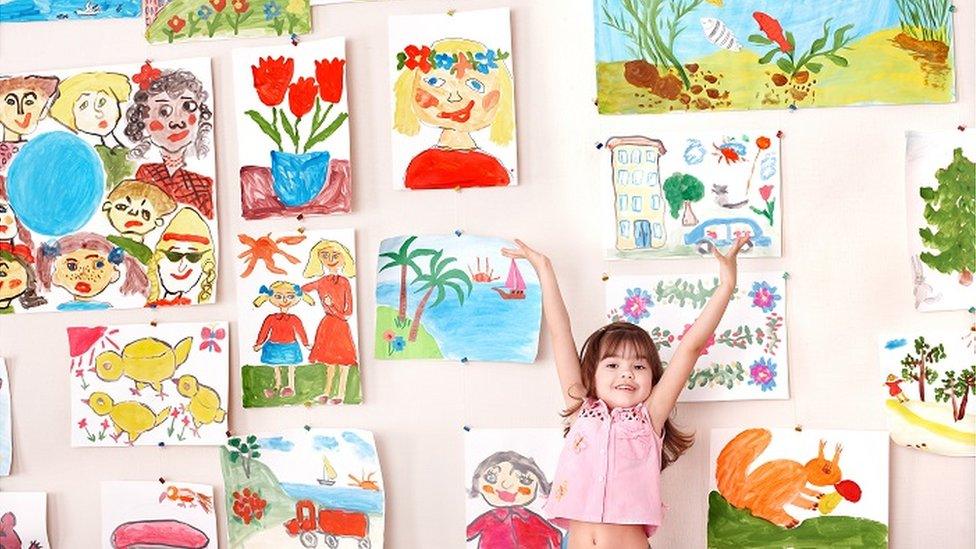
If you've run out of display space for your children's art, you could try digitising it all
How can busy working mums and dads keep tabs on their toddlers and stay connected to them during the working day?
A growing number of tech entrepreneurs believe they have an answer.
But does using more technology offer time-starved parents valuable new ways to interact with their kids or simply make them more paranoid?
Molawa Adesuyi is co-founder and chief executive of Mytoddlr, an app that gives you updates on what your little one is up to at nursery or creche. He is in no doubt about the usefulness of such tech.
"Most working parents drop off their children in day nurseries as early as 8 or 9am, and can't pick them up till 5 or 6pm," he says.
"And in this time, they have absolutely no way of keeping in touch or staying abreast of their children's welfare all through the day. This is a major, major problem."
With the Mytoddlr app and website, nurseries input data about the child's routine and behaviour throughout the day - from potty breaks to naps - and parents receive these updates in real time on their phones or computers.
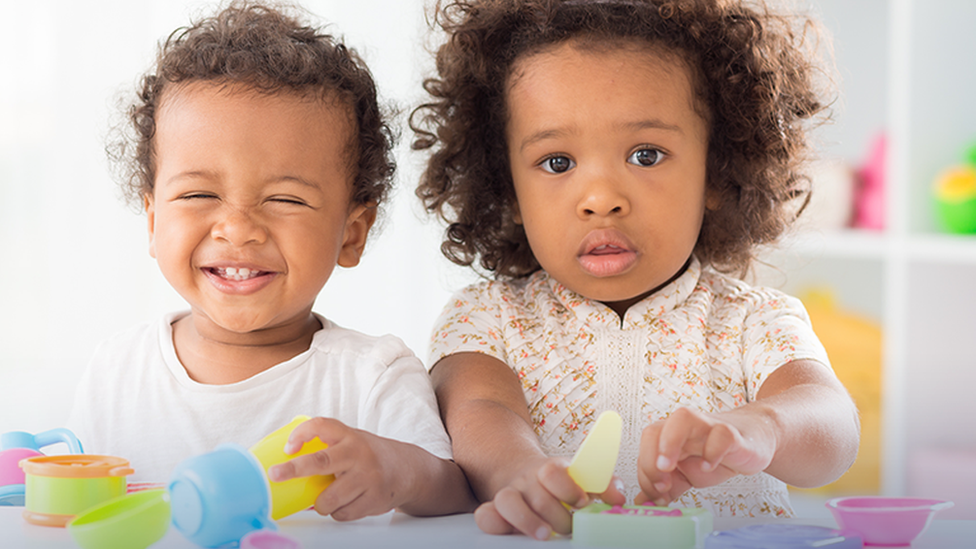
Mytoddlr will send you regular updates on your child's activities at nursery or creche
"The nursery is happy, parents are happy, it's a win-win for everyone really," says Mr Adesuyi.
But isn't this an extra administrative burden for nursery staff?
Mr Adesuyi claims not, as it can actually reduce paperwork and provide an easier, faster way of communicating with parents, he says.
"There are such great apps out there now for parents... solutions to real problems parents have. It's just nice to see technology change parenting," he concludes.
Launched in 2015, Mytoddlr is being used by 2,000 parents in Lagos, Nigeria, and is currently being trialled by some nurseries in London.
Paranoid parenting?
Harsh Songra, 19-year-old founder and chief executive of smartphone app My Child, was inspired to launch his child development monitoring app after having dyspraxia when growing up.
This developmental disorder affecting co-ordination and movement can be difficult to diagnose if parents don't know what to look out for.
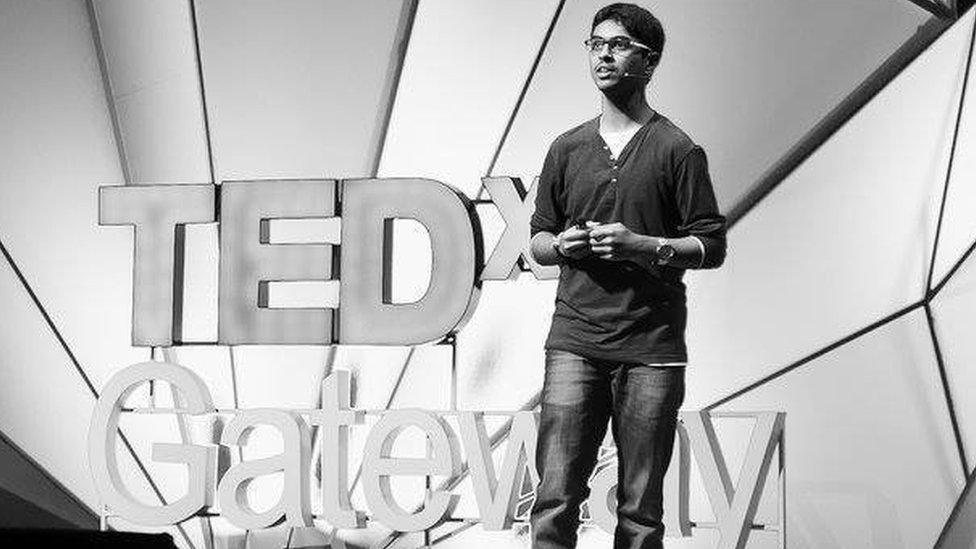
Tech entrepreneur Harsh Songra developed My Child to help parents monitor child development
"I have known the struggle of a family where the child has a disorder," he says. "It took my parents over nine years to figure out the specific problem, and I still go through some health issues," says Mr Songra.
The My Child app helps parents monitor the development of a child up to 24 months old, asking questions, aggregating relevant content, and identifying local experts.
Launched in early 2015, the app has been downloaded more than 11,000 times in over 140 countries, and is particularly popular in the US, India, Singapore and the UK.
Mr Songra believes technology is a useful parenting tool, but concedes that it may sometimes interfere with the work of professionals.
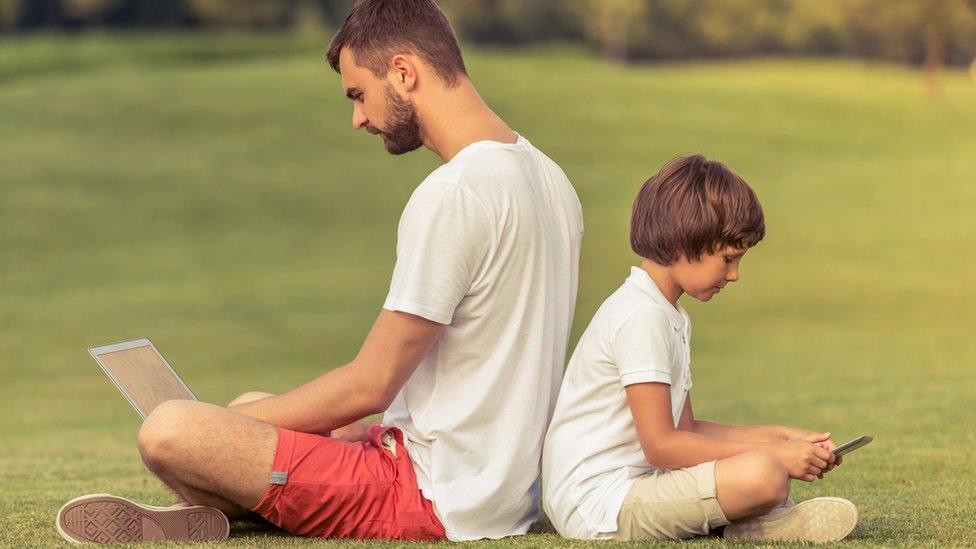
Tech can bring families together but can it also keep them apart?
"At times it does affect their relations with doctors, because parents become paranoid about their child because of what they searched on Google," he says.
"The problem is that we tend to believe the content of one link over 100 others, and then take actions based on that knowledge.
"But we believe all this will surely change with time, as there is going to be more awareness about these issues in the future."
Picture perfect
Parenting apps - from webcam baby monitors to location-tracking services, interactive games to health checkers - are definitely on the rise, as busy parents integrate the latest tech into their lives.
One woman in Australia even used Siri, Apple's voice-activated iPhone assistant, to call an ambulance when her toddler daughter stopped breathing.
But for New Jersey-based entrepreneur Amit Murumkar, the motivation for creating an app was purely practical.
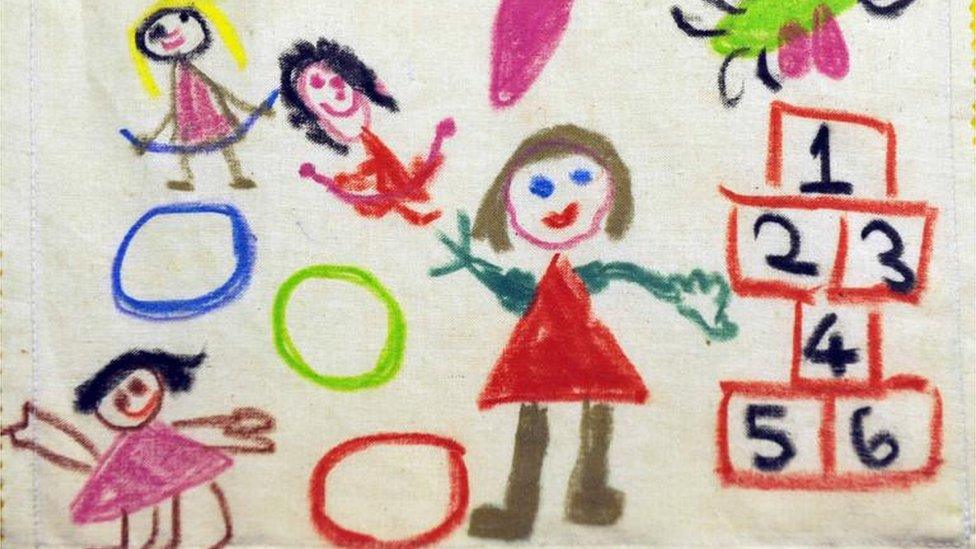
Once digitised, your child's artwork can be shared with other family members or made into gifts
"My daughter was three... and would bring a piece of art back daily from her Montessori school, but there is only so much you can put on a refrigerator door," he says.
"I also was a good artist as a kid, and when I became a parent I thought, 'If only I could show the art I did to my own kids.'"
So he built a smartphone app called Canvsly, that allows parents to capture these works of art on the app, organise them into albums, and invite grandparents or other family members to see and comment on them.
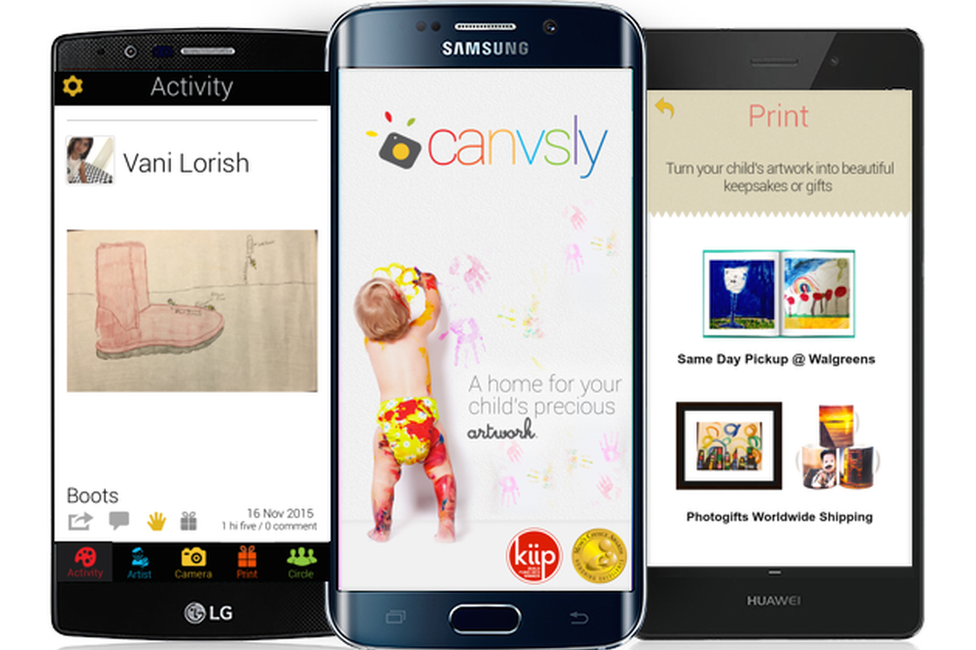
But would you trust the app enough to ditch all the originals?
The artwork can also be printed through the app and used to create gifts. As long as you trust the app's cloud storage provider, you could then ditch the originals.
"Parents can go guilt-free and clutter-free," Mr Murumkar says, adding that the app has been downloaded in more than 100 countries.
Anesu Charamba, a tech analyst at research consultancy Frost & Sullivan, believes such apps are helping parents raise and interact with their children in "new and exciting ways".
And as smartphones and cheaper, more reliable internet access spreads beyond developed economies to the rest of the world, early adopters will be joined by the majority, he believes.

Follow Technology of Business editor @matthew_wall on Twitter, external